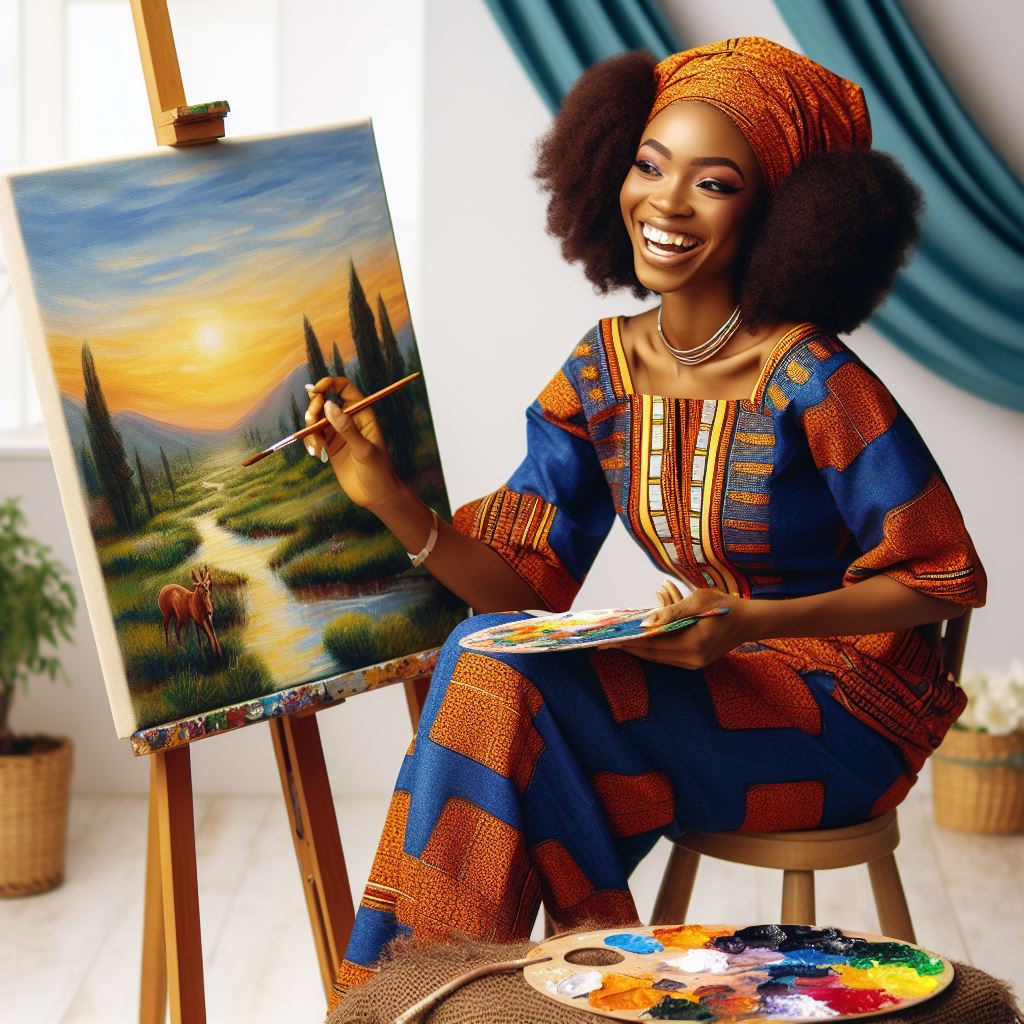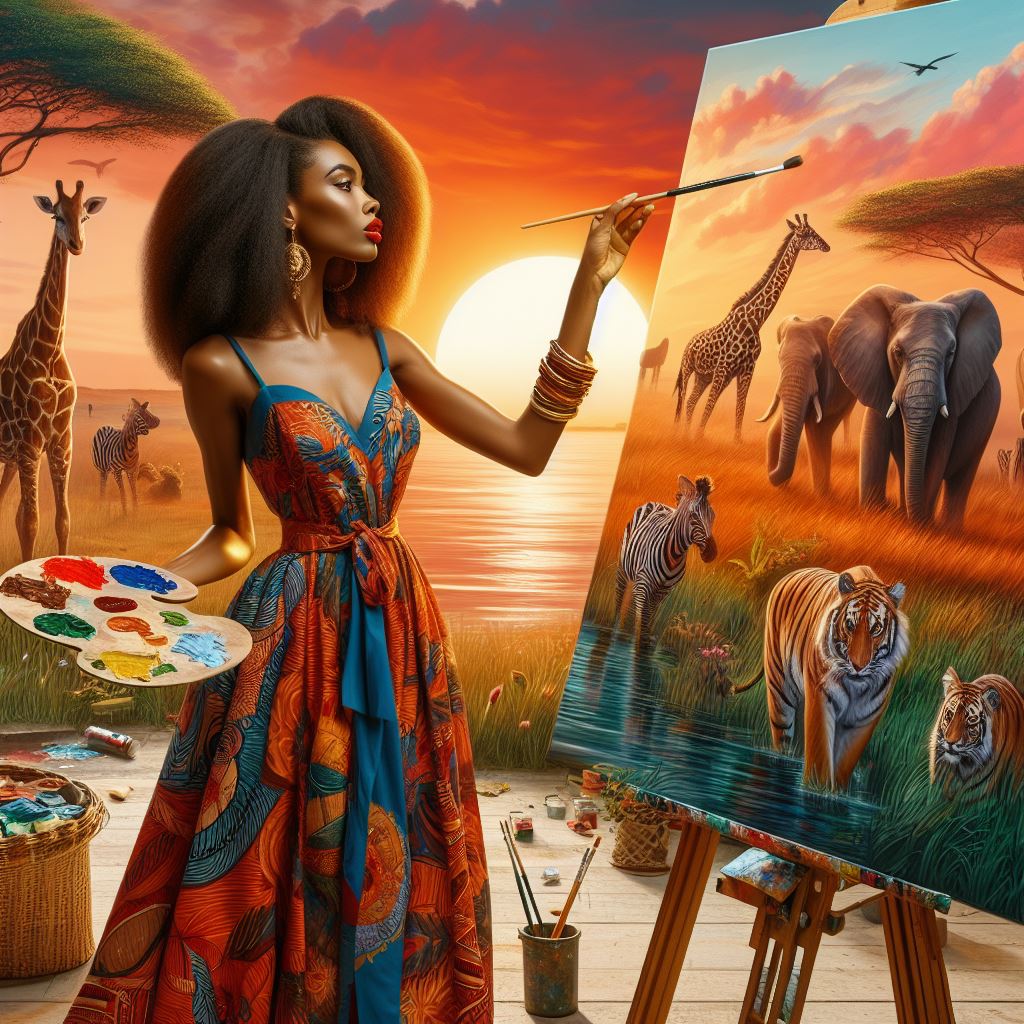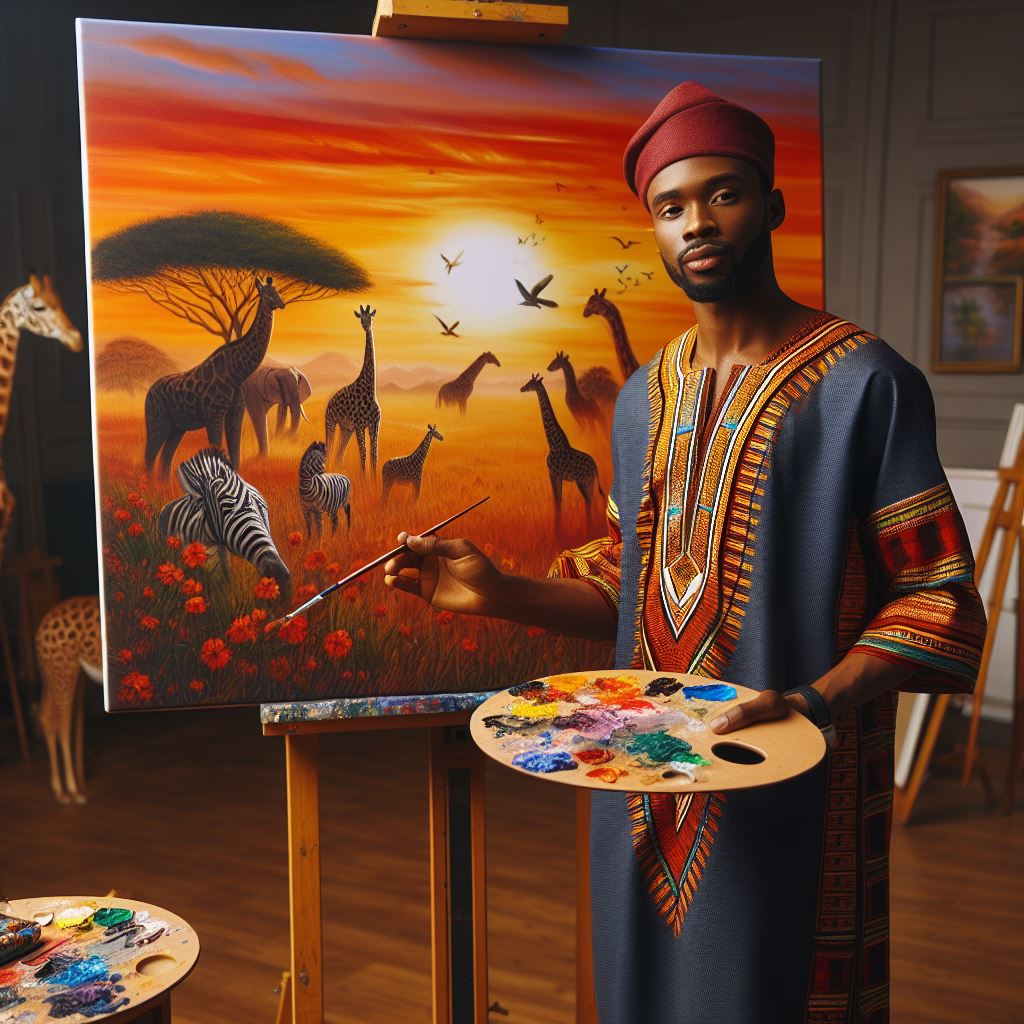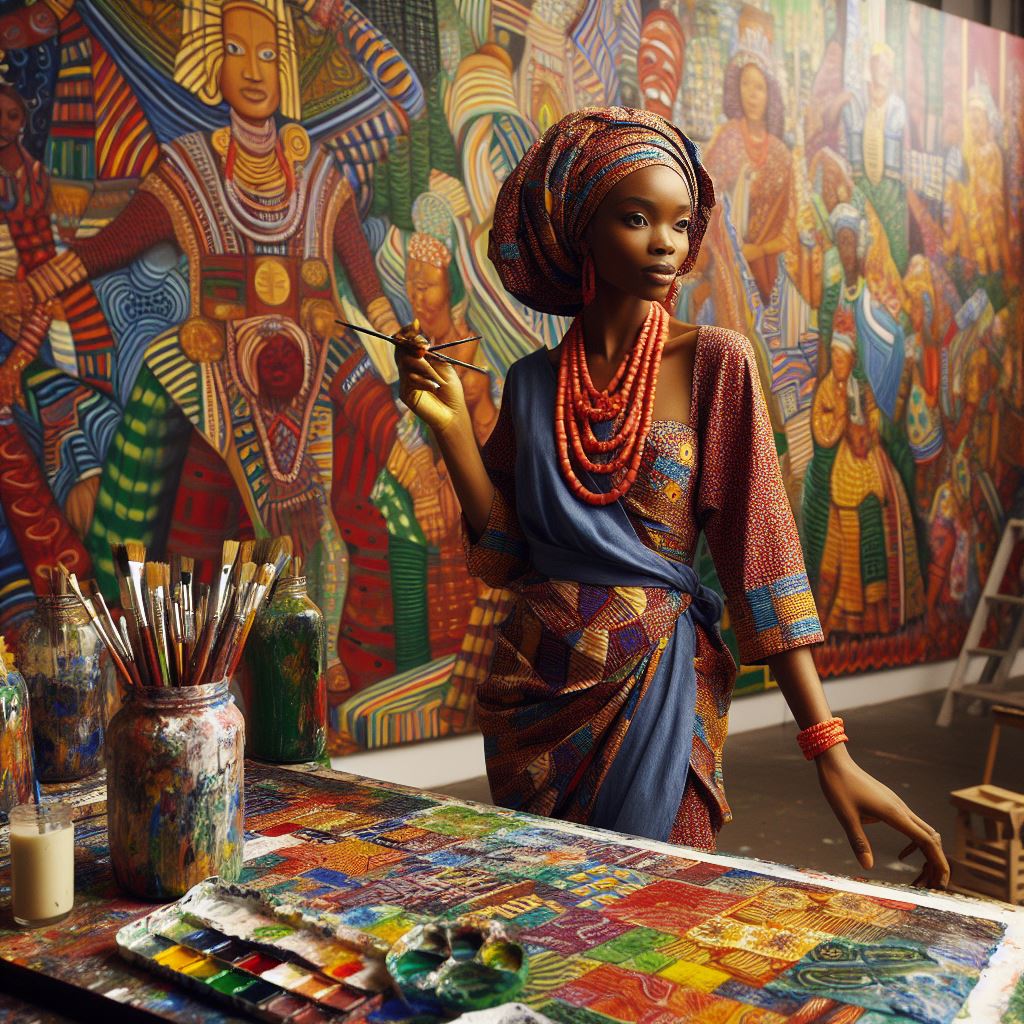Introduction
The Nigerian film and TV industry, often referred to as Nollywood, has seen exponential growth in recent years with Cultural Influences in Film and TV Production
Cultural influences play a crucial role in shaping the narratives, themes, and characters portrayed in Nigerian productions.
Nollywood has become a global phenomenon, with its unique storytelling and representation of Nigerian culture captivating audiences worldwide.
By infusing elements of Nigerian traditions, beliefs, and customs, filmmakers create a sense of authenticity and relatability for viewers.
The industry’s success can be attributed to its ability to reflect the diverse cultural landscape of Nigeria.
Cultural influences not only add depth to the storytelling but also help in preserving and promoting Nigerian heritage.
Through film and TV, Nigerian artists and creators are able to showcase the richness and diversity of their cultural identity.
As audiences connect with these cultural references, they gain a deeper appreciation for Nigerian traditions and values.
The integration of cultural influences in Nigerian productions also serves as a form of cultural diplomacy.
It allows for the exchange of ideas, values, and narratives between Nigeria and other countries, fostering cross-cultural understanding.
Generally, cultural influences are at the heart of Nigerian film and TV production, shaping the industry and promoting cultural appreciation.
Historical influences
When examining the historical influences on Nigerian film and TV production, it is essential to consider the impact of traditional Nigerian cultures on storytelling.
Impact of Traditional Nigerian Cultures on Storytelling
Nigeria is a country rich in diverse cultures and traditions, each with its unique storytelling style.
These cultures have played a significant role in shaping the narratives of Nigerian films and TV shows.
- Traditional Nigerian cultures emphasize oral storytelling as a means of passing down history, customs, and values from one generation to the next.
- This emphasis on storytelling has influenced the way Nigerian filmmakers and TV producers craft their narratives, focusing on rich and engaging storytelling techniques.
- Story elements such as moral lessons, familial bonds, and communal harmony are often woven into Nigerian films and TV shows, reflecting the values of traditional Nigerian cultures.
Incorporation of Folklore, Myths, and Traditions in Film and TV Production
Another key aspect of cultural influences on Nigerian film and TV production is the incorporation of folklore, myths, and traditions into storytelling.
- Nigerian folklore and myths are a treasure trove of unique and captivating stories that filmmakers often draw upon to create compelling narratives.
- These folklore and mythological elements add depth and richness to Nigerian films and TV shows, offering audiences a glimpse into the country’s cultural heritage.
- By blending traditional Nigerian folklore with contemporary storytelling techniques, filmmakers are able to create a bridge between the past and the present, appealing to both local and international audiences.
Therefore, the historical influences of traditional Nigerian cultures, folklore, myths, and traditions are evident in Nigerian film and TV production, shaping the narratives and enriching the cultural landscape of the country’s entertainment industry.
Read: Introduction to African and Asian Studies in Nigeria
Language and communication
The Role of Indigenous Languages in Nigerian Film Production
Indigenous languages hold a significant position in the vibrant tapestry of Nigerian film production.
They serve as conduits of cultural expression, adding layers of authenticity and depth to storytelling.
Pidgin English and various local dialects play pivotal roles in shaping narratives and resonating with audiences across diverse socio-cultural backgrounds.
Role of Indigenous Languages in Nigerian Productions
The incorporation of indigenous languages into Nigerian films is more than just a linguistic choice; it is a celebration of Nigeria’s rich cultural heritage.
These languages infuse narratives with nuances, capturing the essence of traditional customs, beliefs, and societal dynamics.
By embracing indigenous languages, filmmakers create authentic portrayals of Nigerian life, fostering a sense of connection and familiarity among viewers.
Use of Pidgin English and Other Local Dialects in Adding Authenticity to Storytelling
Pidgin English, with its widespread usage and unique blend of African languages and English, serves as a unifying force in Nigerian cinema.
Its inclusion transcends linguistic barriers, offering a sense of universality while retaining a distinctly Nigerian flavor.
Pidgin English brings characters to life, infusing dialogue with colloquialisms and expressions that resonate with audiences on a visceral level.
Additionally, the use of local dialects adds layers of authenticity to storytelling.
Whether it’s Yoruba, Igbo, Hausa, or any other regional language, incorporating local dialects immerses viewers in the cultural milieu of the story.
It creates a sense of place and belonging, transporting audiences to the heart of Nigerian communities.
Furthermore, the use of indigenous languages preserves cultural identity and fosters pride in Nigeria’s linguistic diversity.
It showcases the beauty and richness of Nigerian languages, encouraging their preservation and appreciation among future generations.
By embracing indigenous languages in film production, Nigeria reaffirms its commitment to cultural heritage and linguistic pluralism.
In Nigerian cinema, indigenous languages are not merely communication tools; they are repositories of history, tradition, and identity.
They serve as vessels through which stories are told, emotions are conveyed, and connections are forged.
As Nigerian filmmakers continue to explore the intricate interplay between language and narrative, indigenous languages will remain integral to the fabric of Nigerian cinema, shaping its identity and reflecting the soul of the nation.
Read: Famous Nigerian Alumni of Communication Arts Programs
Costumes and aesthetics
In Nigerian film and TV production, costumes and aesthetics play a crucial role in showcasing the rich cultural heritage of the country.
Let’s explore how traditional attire influences costume design and how cultural aesthetics are represented in set design and visuals.
Influence of Nigerian traditional attire in costume design
- Nigerian traditional attire, such as the colorful Ankara fabric and elaborate headgear, are often incorporated into costume design.
- Costume designers pay close attention to detail, ensuring that actors are dressed authentically in traditional attire that reflects the character’s background.
- Various ethnic groups in Nigeria have distinct traditional attire, which adds depth and diversity to the characters portrayed in film and TV productions.
- Traditional attire not only adds visual interest but also helps to convey the character’s social status, occupation, and cultural identity.
- Costume designers often collaborate with cultural experts to ensure that the attire worn by actors accurately represents the culture and traditions of the Nigerian people.
Representation of cultural aesthetics in set design and visuals
- Set designers draw inspiration from Nigerian architecture, art, and cultural landmarks to create visually stunning sets that immerse viewers in the story.
- Colors play a significant role in Nigerian aesthetics, with vibrant hues and intricate patterns often featured in set design to reflect the country’s vibrant culture.
- Props and decorative elements are carefully chosen to evoke a sense of authenticity and to create a visually appealing backdrop for the story.
- Nigerian film and TV productions often showcase traditional ceremonies, festivals, and rituals, highlighting the cultural importance of these events through set design and visuals.
- Visual effects and cinematography are used to enhance the storytelling and create a unique visual language that captures the essence of Nigerian culture.
Overall, costumes and aesthetics in Nigerian film and TV production play a vital role in preserving and promoting the country’s cultural heritage.
Through authentic costume design, set decoration, and visual aesthetics, filmmakers are able to transport audiences into the vibrant and diverse world of Nigeria, showcasing its rich traditions and history on screen.
Read: Digital Media Trends in Communication Arts
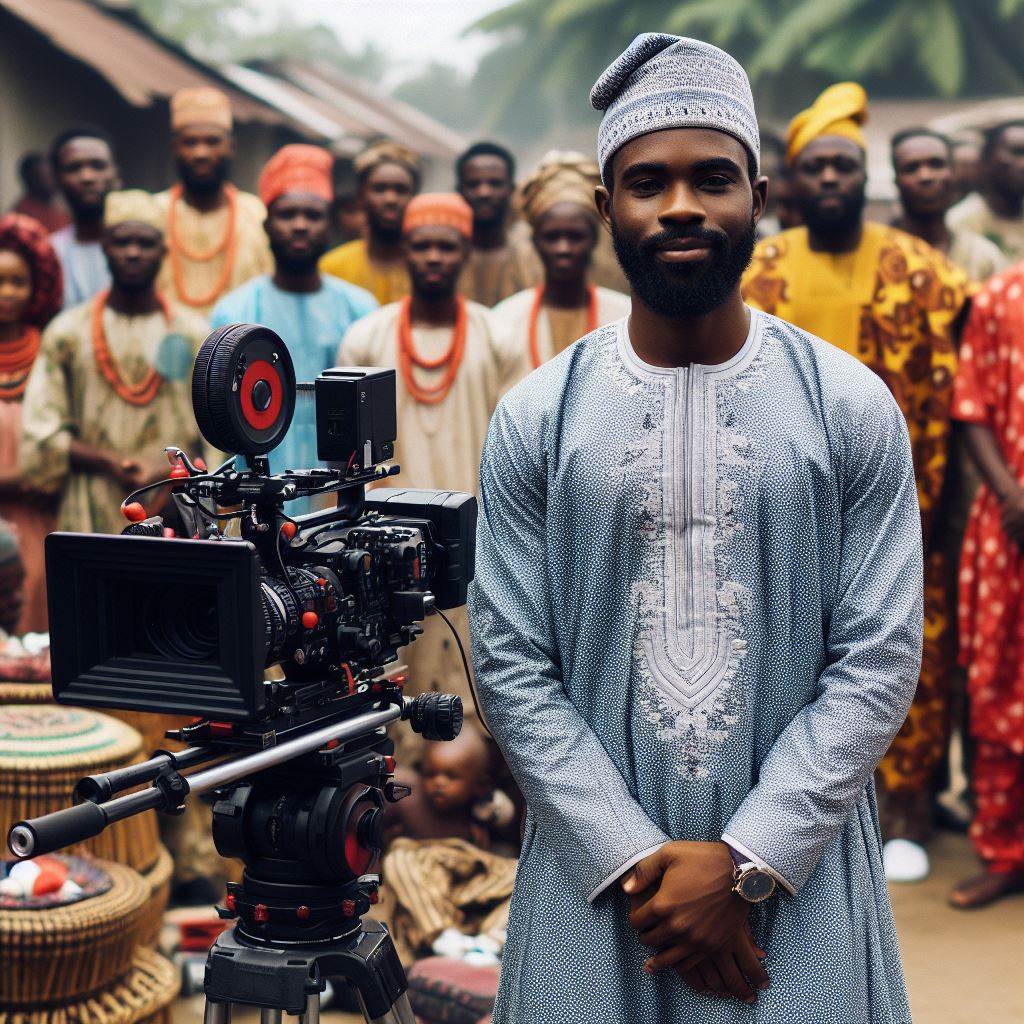
Themes and Narratives
Indigenous languages hold a significant position in the vibrant tapestry of Nigerian film production.
They serve as conduits of cultural expression, adding layers of authenticity and depth to storytelling.
Pidgin English and various local dialects play pivotal roles in shaping narratives and resonating with audiences across diverse socio-cultural backgrounds.
Role of Indigenous Languages in Nigerian Productions
The incorporation of indigenous languages into Nigerian films is more than just a linguistic choice; it is a celebration of Nigeria’s rich cultural heritage.
These languages infuse narratives with nuances, capturing the essence of traditional customs, beliefs, and societal dynamics.
By embracing indigenous languages, filmmakers create authentic portrayals of Nigerian life, fostering a sense of connection and familiarity among viewers.
Use of Pidgin English and Other Local Dialects in Adding Authenticity to Storytelling
Pidgin English, with its widespread usage and unique blend of African languages and English, serves as a unifying force in Nigerian cinema.
Its inclusion transcends linguistic barriers, offering a sense of universality while retaining a distinctly Nigerian flavor.
Pidgin English brings characters to life, infusing dialogue with colloquialisms and expressions that resonate with audiences on a visceral level.
Additionally, the use of local dialects adds layers of authenticity to storytelling.
Whether it’s Yoruba, Igbo, Hausa, or any other regional language, incorporating local dialects immerses viewers in the cultural milieu of the story.
It creates a sense of place and belonging, transporting audiences to the heart of Nigerian communities.
Furthermore, the use of indigenous languages preserves cultural identity and fosters pride in Nigeria’s linguistic diversity.
It showcases the beauty and richness of Nigerian languages, encouraging their preservation and appreciation among future generations.
By embracing indigenous languages in film production, Nigeria reaffirms its commitment to cultural heritage and linguistic pluralism.
In Nigerian cinema, indigenous languages are not merely communication tools; they are repositories of history, tradition, and identity.
They serve as vessels through which stories are told, emotions are conveyed, and connections are forged.
As Nigerian filmmakers continue to explore the intricate interplay between language and narrative, indigenous languages will remain integral to the fabric of Nigerian cinema, shaping its identity and reflecting the soul of the nation.
Exploration of Cultural Themes Such as Family, Tradition, and Religion
Nigerian films often explore cultural themes such as family, tradition, and religion, offering profound insights into the complexities of Nigerian society.
These themes form the backbone of many narratives, providing a lens through which audiences can engage with and reflect upon their own cultural experiences.
Family dynamics are a recurring motif in Nigerian cinema, showcasing the intricate relationships and dynamics within familial units.
From intergenerational conflicts to the importance of communal support systems, family-centric narratives resonate deeply with audiences, tapping into universal experiences of love, loss, and reconciliation.
Tradition also plays a significant role in Nigerian storytelling, with filmmakers often grappling with the tensions between modernity and traditional values.
Themes of cultural identity, rites of passage, and ancestral heritage are woven into the fabric of many narratives, highlighting the importance of preserving and honoring Nigeria’s rich cultural heritage.
Religion is another prominent theme in Nigerian cinema, reflecting the country’s diverse religious landscape.
Filmmakers explore the role of faith in shaping individual beliefs and societal norms, delving into issues of morality, spirituality, and religious tolerance.
These narratives offer nuanced perspectives on the complexities of religious identity in contemporary Nigeria.
Incorporation of Societal Issues and Historical Events in Storytelling
Nigerian filmmakers are not afraid to tackle pressing societal issues and historical events in their storytelling.
From political corruption and economic inequality to gender inequality and social injustice, Nigerian cinema serves as a platform for raising awareness and provoking critical dialogue on these issues.
Furthermore, historical events such as colonialism, independence struggles, and post-colonial nation-building efforts are often depicted in Nigerian films, offering a glimpse into Nigeria’s complex past and its ongoing quest for social and political progress.
By contextualizing contemporary issues within historical frameworks, filmmakers provide audiences with a deeper understanding of Nigeria’s socio-political landscape and its implications for the present and future.
In summary, Nigerian cinema’s exploration of cultural themes, societal issues, and historical events enriches the storytelling experience, offering audiences thought-provoking narratives that resonate on both personal and societal levels.
As Nigerian filmmakers continue to push boundaries and challenge conventions, indigenous languages will remain essential tools for authentically conveying the diverse narratives of Nigeria’s rich cultural tapestry.
Read: Communication Arts: Job Prospects and Salaries
Sound and music
One crucial aspect of Nigerian film and TV production is the use of sound and music to enhance the overall viewing experience.
Incorporation of traditional Nigerian music in soundtracks
Nigerian filmmakers often incorporate traditional Nigerian music into their soundtracks to add an authentic and culturally rich element to their productions.
Whether it’s the rhythmic beats of Afrobeat, the soulful melodies of highlife music, or the vibrant sounds of traditional Yoruba or Igbo music, these musical genres help to set the tone of the story being told on screen.
By using traditional Nigerian music in soundtracks, filmmakers are able to connect with their audience on a deeper level, evoking emotions and creating a sense of nostalgia or familiarity for viewers.
It also showcases the rich musical heritage of Nigeria and pays homage to the country’s diverse cultural traditions.
Influence of Nigerian music icons in film and TV production
Nigerian music icons, such as Fela Kuti, King Sunny Ade, and Burna Boy, have played a significant role in shaping the sound of Nigerian film and TV production.
Their music has not only influenced the type of music used in soundtracks but also the overall style and feel of the productions themselves.
These music icons bring their unique sounds and perspectives to the table, collaborating with filmmakers to create innovative soundtracks that appeal to a wide range of audiences.
Their influence is evident in Nigerian film and TV production, with Afrobeat rhythms, reggae influences, and traditional percussion instruments.
Furthermore, Nigerian music icons often compose original scores for films and TV shows, integrating their expertise into storytelling.
Their involvement adds depth and authenticity to the productions, creating a cohesive and immersive viewing experience for audiences.
Sound and music are vital in Nigerian film and TV, bringing stories to life and enhancing cultural richness.
By incorporating traditional Nigerian music in soundtracks and drawing from Nigerian music icons, filmmakers create dynamic productions resonating globally.
Read: Internship Opportunities for Communication Arts Students
International collaborations
Nigerian film and TV productions have increasingly benefited from international collaborations in recent years.
These collaborations have brought fresh perspectives and new ideas to Nigerian storytelling.
International partnerships have helped Nigerian filmmakers access a wider global audience.
Through collaborations, Nigerian productions have improved in terms of production quality and technical expertise.
Collaborations with international filmmakers have opened up opportunities for Nigerian talents to showcase their skills on a global platform.
The exchange of ideas and experiences between Nigerian and international filmmakers has enriched the creative landscape in Nigerian cinema.
Impact of global influences in Nigerian productions
Global influences have influenced the themes, storytelling techniques, and visual aesthetics of Nigerian films and TV shows.
The influx of foreign investment in the Nigerian entertainment industry has elevated production values and standards.
International collaborations have facilitated the adaptation of international best practices in Nigerian film and TV production.
Global influences have helped Nigerian filmmakers broaden their horizons and experiment with new genres and styles.
The incorporation of global perspectives has made Nigerian productions more relatable and appealing to a diverse audience.
Importance of showcasing Nigerian culture to international audiences
Showcasing Nigerian culture to international audiences helps promote cultural exchange and mutual understanding.
By presenting authentic Nigerian stories, filmmakers can challenge stereotypes and misconceptions about Nigeria.
Sharing Nigerian culture with the world fosters pride and appreciation for the country’s rich heritage and traditions.
Through cultural representation, Nigerian filmmakers contribute to the global discourse on diversity and inclusivity.
Showcasing Nigerian culture globally can attract tourism, investment, and partnerships that benefit the country’s economy.
Transform Your Career with Expert Guidance
Get personalized mentorship consulting that’s tailored to your unique path. Our expert advice is actionable and exclusive.
Get StartedIn summary, international collaborations shape the future of Nigerian film and TV by bringing diverse influences and expanding opportunities.
Cultural preservation and promotion
Preserving Nigerian Heritage Through Film and TV
Film and TV productions play a crucial role in preserving Nigerian heritage by showcasing traditional customs and practices.
These mediums serve as a visual representation of cultural events, rituals, and traditions that are passed down through generations.
By capturing these aspects on-screen, filmmakers and producers ensure that Nigeria’s rich cultural heritage is documented and celebrated.
For example, Nollywood films often incorporate traditional ceremonies, dances, and attire that are unique to different Nigerian ethnic groups.
The portrayal of these cultural elements helps to educate both local and international audiences about Nigeria’s diverse heritage.
Additionally, through storytelling and narrative techniques, filmmakers can keep age-old traditions alive and relevant in modern society.
Promoting Nigerian Culture Globally
Nigerian film and TV productions have made a significant impact in promoting the country’s culture on a global scale.
The popularity of Nollywood has led to increased international recognition of Nigerian cinema and storytelling.
African diaspora communities around the world connect with Nigerian films as a way to stay connected to their cultural roots.
Furthermore, the global success of Nigerian films has opened doors for cross-cultural collaborations and co-productions with filmmakers from other countries.
Film festivals and international screenings offer Nigerian filmmakers a platform to showcase their work and cultural perspectives.
Overall, the influence of Nigerian film and TV productions in promoting the country’s culture globally cannot be understated.
Film and TV play a crucial role in preserving and promoting Nigerian heritage, maintaining cultural identity, and fostering cross-cultural understanding.
Conclusion
In summary, cultural influences play a pivotal role in shaping Nigerian film and TV production.
The rich tapestry of traditions, languages, and beliefs adds depth and authenticity to on-screen narratives.
By acknowledging and celebrating Nigerian cultural heritage, filmmakers and content creators can create more meaningful and relatable stories that resonate with local and international audiences.
This not only preserves cultural identity but also fosters a sense of pride and unity among Nigerians.
As viewers, we have the power to support and promote Nigerian cultural representation in the film and TV industry.
By actively seeking out and engaging with content that showcases diverse aspects of Nigerian culture, we can encourage the continued growth and development of this vibrant and dynamic creative sector.
Let’s embrace the beauty and diversity of Nigerian culture on screen, and together, we can help elevate Nigerian film and TV production to new heights.
Support and celebrate Nigerian stories, voices, and perspectives – they deserve a place in the spotlight.

